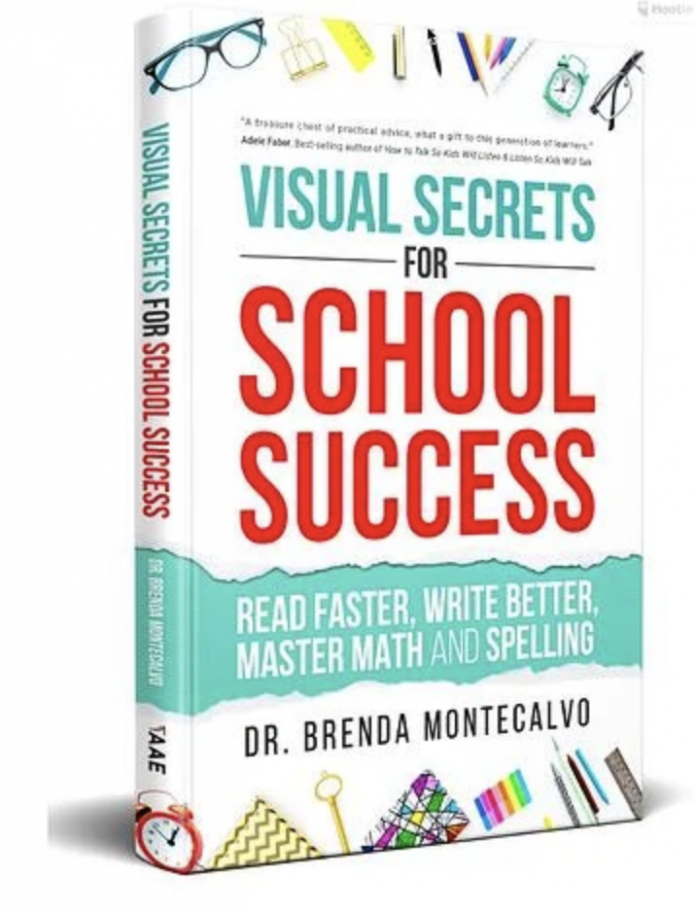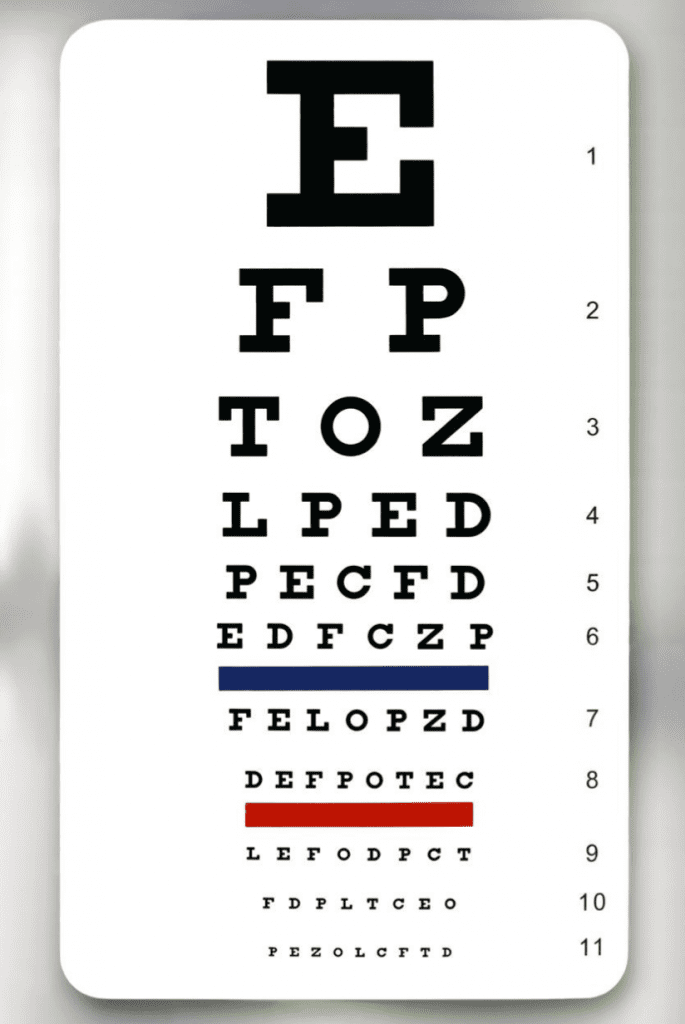 How much does your child’s homework dominate your weeknights? If you’re looking for a solution to this common challenge, I have a book suggestion for you: Visual Secrets for School Success: Read Faster, Write Better, Master Math and Spelling.
How much does your child’s homework dominate your weeknights? If you’re looking for a solution to this common challenge, I have a book suggestion for you: Visual Secrets for School Success: Read Faster, Write Better, Master Math and Spelling.
Written by my colleague Dr. Brenda Montecalvo, the book provides a crucial opportunity for you to help your child connect good visual skills with high-level learning — and in the process help him or her become a much more efficient, effective student.
Below, I’ll describe the interesting genesis for the book, highlight ways you can use it to help your child, and provide important vision information that parents often lack.
Helpful Insights from Professional and Personal Experience
Visual Secrets distills Dr. Montecalvo’s 35 years of experience helping children with learning-related vision difficulties into an easy-to-read book. She’s witnessed thousands of patients go from failing grades to A’s by teaching them how to improve their visual skills and apply them to their school subjects.
But the seed of the book began decades ago when she devised visual games, techniques, and strategies to help her own three children become highly efficient and effective students.
All of Dr. Montecalvo’s children excelled in school despite bringing home very little homework throughout elementary and high school. Today, she and her husband are the proud parents of an engineer, a medical doctor, and a third-generation optometrist. (Dr. Montecalvo’s mother was an optometrist for 70 years.)
Dr. Montecalvo says her children “were taught how to use their visual skills to gather information in a shorter period of time. The positive ripple effects of that can’t be underestimated.”
Learning More Efficiently Means Less Homework
“It is life-changing,” writes Dr. Montecalvo, “when students finish most of their work in the classroom and have less than 30 minutes of assignments to complete at home.” That’s because they now have more time for fun, family, and friends. So how is that possible?
In Visual Secrets, Dr. Montecalvo focuses on the core subjects of handwriting, spelling, composition, math, and reading comprehension. She walks you through the visual skills specific to each subject.
She then covers how to help your child apply them to be a more efficient learner, with simple exercises such as the following:
- To help grasp basic addition and subtraction, use 10 equally-sized stair steps that a child moves up and down on.
- To help develop visual sequence and discrimination skills, have your child do stacking-cup exercises.
- To foster composition skills, have a child describe a mystery object in the room and encourage them to use descriptive words to convey its size, shape, color, and location.
- To improve reading comprehension, use a chart of commonly confused words, like this-that-then, and have your child call out the words quickly.
Other chapters address creating an ideal learning environment at home, working efficiently during school hours, staying organized, and building self-confidence.
All the strategies in the book work together to help maximize time efficiency. For example, “If you can read faster, you can get that assignment done in the classroom, and then you can switch to the assignment you got in the class before,” says Dr. Montecalvo. “Pretty soon, your child is bringing home less homework, is doing better in school, and everyone is happier.”
Why Your Child Should Have a Functional Eye Exam
Dr. Montecalvo stresses that before using Visual Secrets at home, you should first take your child to a developmental optometrist. This is an optometrist who specializes in treating functional vision problems, which can include difficulties with binocular vision, eye movements and depth perception, as well as visual deficits following brain injuries.
Functional vision encompasses how the entire visual system — the eyes, the brain, the visual pathways — works together to help a person interact with their environment.
You may be wondering if the eye screening your child received at school or your pediatrician’s office is enough. The answer is no. Vision screenings and conventional eye exams primarily measure visual acuity, or 20/20 eyesight, which is usually tested with the help of a Snellen eye chart such as the one below.

But as a parent, you should know that there is more to vision than 20/20 eyesight. In fact, learning-related vision problems often have little to do with visual acuity. And that’s exactly why a comprehensive Functional Vision Exam is important.
Dr. Montecalvo’s Larger Message and Mission
 Visual Secrets is part of a larger mission for Dr. Montecalvo. “We use vision to explore and understand the world around us,” she says. “Our vision tells our brain how to move, how to think, how to do. That’s why we need to educate the public so they demand that vision be evaluated appropriately.”
Visual Secrets is part of a larger mission for Dr. Montecalvo. “We use vision to explore and understand the world around us,” she says. “Our vision tells our brain how to move, how to think, how to do. That’s why we need to educate the public so they demand that vision be evaluated appropriately.”
Vision is integral to better learning. But for Dr. Montecalvo, it’s really about so much more than that. “I’m convinced that when someone can use the full potential of their vision, they’re then more able to reach their full potential as a person,” she says. “And when they can do that, they can help make the world a better place.”
For more information on Dr. Montecalvo, visit her website.
A Vision Quiz Can Be the First Step Toward Identifying the Problem
Visual Secrets could be a helpful tool to help improve your child’s school performance, reduce the nightly homework, and create a happier home for everyone.
But if you suspect there could be a functional vision problem underlying your child’s schoolwork struggles, I strongly recommend you take The Vision Therapy Center’s free online Vision Quiz.
If your child does have a functional vision problem, there’s good news: Optometric vision therapy has proven to be highly effective at solving a wide range of functional vision problems.
Click here to take the Vision Quiz.
About the author: Dr. Kellye Knueppel is a developmental optometrist specializing in vision related learning problems, sports vision, and rehabilitative optometry. She is board certified in vision development as a Fellow of the College of Optometrists in Vision Development. Since opening The Vision Therapy Center in 1995, she has dedicated herself to helping people overcome their visual problems.








